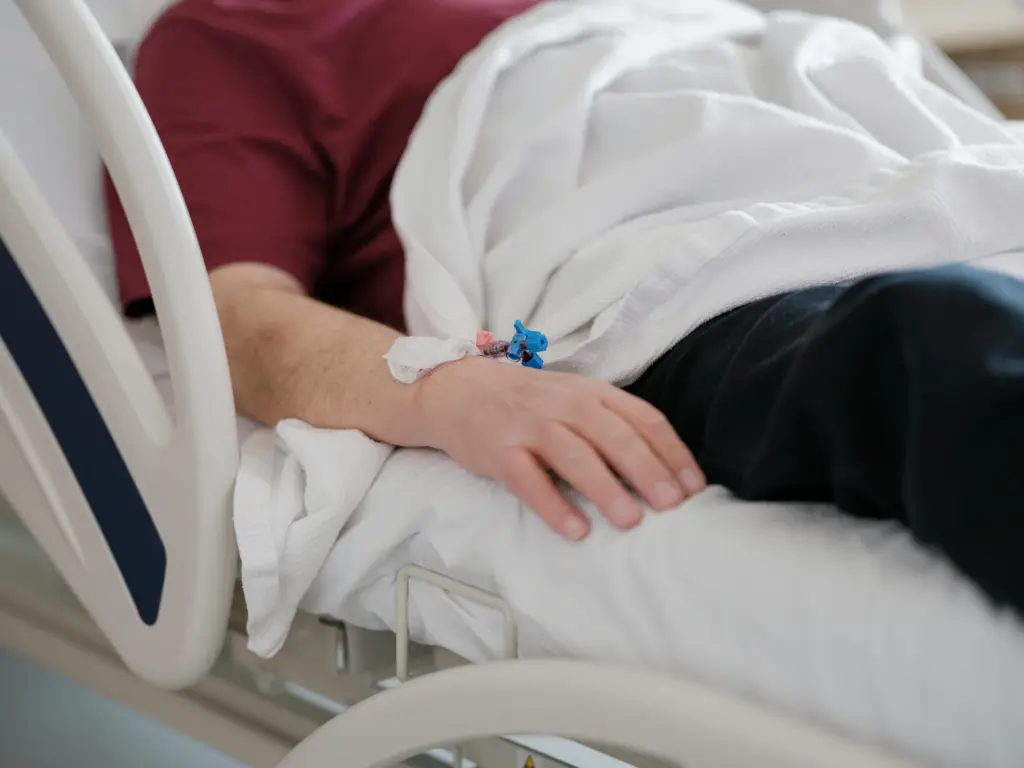When someone’s world unravels fast—through addiction, mental illness, or both—waiting isn’t always an option. That’s when involuntary commitment Texas laws step in, not to punish, but to protect. The process is complex, and it can be emotionally devastating for families. But it’s also one of the most powerful legal tools for initiating lifesaving care.
Involuntary commitment doesn’t mean permanent hospitalization or punishment. It’s a safety net for individuals who pose a serious risk and are unable to recognize their need for treatment. While Texas law leans heavily towards protecting individual rights, it also recognizes that untreated mental illness or addiction can become a danger.
Understanding this process can help families navigate crisis situations and know what options exist. However, it’s important to note that The Springboard Center only accepts clients who choose treatment voluntarily. We believe lasting recovery happens when individuals make the personal decision to seek help.
If you’re facing a crisis with a loved one, we’re here to help you understand your options and support you through this difficult time.
What Is Involuntary Commitment in Texas?

Involuntary commitment in Texas is defined under the Texas Health & Safety Code. It allows for the temporary detention and treatment of individuals experiencing severe psychiatric or substance-induced impairment who pose a serious risk of harm to themselves or others.
To be clear, involuntary commitment is a legal process handled by specific state-designated facilities, courts, and medical professionals. It becomes necessary when someone’s decision-making capacity is severely compromised — often due to untreated mental illness, acute intoxication, or psychosis.
For more information: Involuntary Rehab: What Families Need to Know About Court-Ordered Treatment
Legal Definition and State Code
The Texas Mental Health Code outlines that involuntary commitment is permitted when an individual:
- Has a mental illness or addiction
- Presents a substantial risk of serious harm
- Is unable to make rational treatment decisions
- Refuses or cannot consent to care
This risk must be demonstrated through recent behavior, medical evaluation, or dangerous neglect.
Who It Applies To in Mental Health and Addiction Cases
The law can apply to people suffering from psychosis, suicidal ideation, aggressive mania, or cognitive dysfunction due to chronic substance abuse. Co-occurring conditions—where mental illness and addiction coexist—are common in these cases.
The Difference Between Voluntary and Involuntary Admission
Voluntary clients sign consent for treatment and retain more agency. Involuntary clients are admitted under legal order, often after a crisis. We emphasize preserving dignity and moving clients toward voluntary participation once stabilized.
At The Springboard Center, we only work with individuals who choose treatment voluntarily. We’ve found that when people make the personal decision to seek help, they’re more likely to engage fully in their recovery and achieve lasting results.
How Involuntary Commitment Works in Texas
The legal process typically starts with either an emergency detention or a petition for involuntary commitment. Both paths require strong evidence and can involve healthcare professionals, police, or family members. Judges, doctors, and attorneys are all part of the decision-making process to protect due process rights.
Emergency Detention by Law Enforcement or Physicians
Under these laws, law enforcement officers or certain licensed professionals can detain a person for up to 48 hours (excluding weekends and holidays) if immediate danger exists. This is often used in psychiatric emergencies, overdose events, or psychotic breaks.
After detention, the individual must be evaluated, and a judge determines whether further commitment is necessary.
Petition for Involuntary Commitment by Family or Guardians
A petition for involuntary commitment may be filed by a relative, guardian, or physician. This written application must be submitted to a county court and include:
- Documented behavior showing imminent harm
- Medical or psychological evidence
- Attempts at voluntary treatment
The court then holds a probable cause hearing, and if criteria are met, an order for protective custody or inpatient treatment may be issued.
Court Hearings, Evidence, and Mental Health Evaluations
To proceed with a longer-term commitment, two independent physician evaluations are typically required. These reports, combined with witness testimony, support the judge’s final decision.
The individual has the right to attend the hearing, obtain legal representation, and appeal the court’s ruling.
Who Pays for Involuntary Commitment in Texas?
Who pays for involuntary commitment can vary by case. Public programs may cover low-income individuals through county funds or Medicaid. Private insurance often applies if the individual has coverage.
State-designated facilities that handle involuntary commitments have different financial processes than private treatment centers like The Springboard Center.
Criteria for Involuntary Mental Health Commitment in Texas

The legal threshold for commitment is intentionally high. Texas aims to protect personal liberty while ensuring public and personal safety.
A judge must find clear and convincing evidence that the person:
- Has a diagnosable condition (mental illness or severe addiction)
- Is unable to care for themselves or control their behavior
- Is a risk of harm to self or others if untreated
Springboard’s multidisciplinary team helps evaluate complex cases where mental illness and addiction intersect, often through court-mandated assessments or emergency stabilization.
Mental Illness vs Substance Use Impairment
Mental illness refers to psychiatric disorders like schizophrenia, bipolar disorder, or major depression. However, addiction can also impair judgment, cause hallucinations, and create delusions—especially during prolonged use or withdrawal. Both may meet the criteria if their behavior endangers the individual or others.
When Addiction Alone Qualifies
A diagnosis of substance use disorder may trigger commitment when it results in clear dysfunction—e.g., someone repeatedly overdosing, experiencing severe withdrawals, or losing touch with reality.
Texas Involuntary Commitment for Substance Abuse

Addiction alone isn’t always enough to justify commitment. But when substance use leads to psychosis, self-harm, or neglect, the courts may step in. State-designated facilities provide the immediate stabilization needed in these crisis situations.
Alcohol and Drug Use as Grounds for Commitment
Repeated alcohol withdrawal seizures, drug-induced psychosis, or neglect due to intoxication are common triggers. Springboard’s alcohol detox program is one such example of urgent care for alcohol-related crises.
How Detox and Rehab Fit into the Legal Process
Involuntary commitment typically begins with detox and progresses into residential care at state-designated facilities. After medical stabilization, individuals may be ready to consider voluntary treatment options.
How to Get Out of Involuntary Commitment in Texas
How to get out of involuntary commitment depends on clinical progress and legal status. While courts make the final decision, physicians and treatment teams often provide reports about the client’s improvement and readiness for voluntary care.
The ultimate goal is always to help individuals regain control over their lives.
Rights to Legal Representation and Appeal
Individuals have the right to an attorney, to contest their commitment in court, and to request reevaluation. This ensures protection from unlawful detention and abuse of the system.
Re-evaluation and Discharge Procedures
Medical professionals must re-evaluate patients periodically. If the individual no longer meets the risk criteria, they may be discharged—even before the original order ends.
Transition to Voluntary Conversion and Aftercare Options
After stabilization through involuntary commitment, many individuals become ready to choose recovery for themselves. This is often when families explore voluntary treatment options like those offered at The Springboard Center.
Find Help Now at The Springboard Center
Our commitment doesn’t end at discharge. Whether clients return home, join a Texas recovery center, or continue outpatient care, we provide the structure and accountability to reduce relapse risk.
Need help navigating involuntary treatment options? The Springboard Center is here with a compassionate team. Contact us today to take the first steps towards healing. We’re ready when you are.




